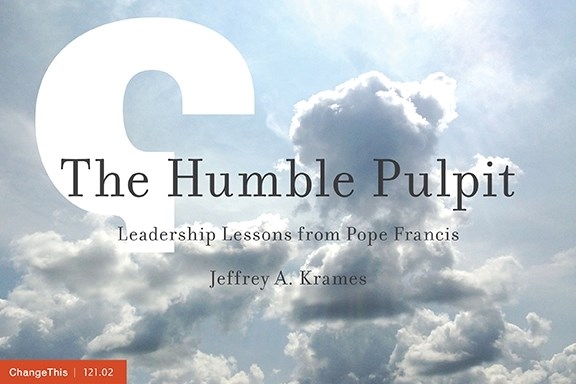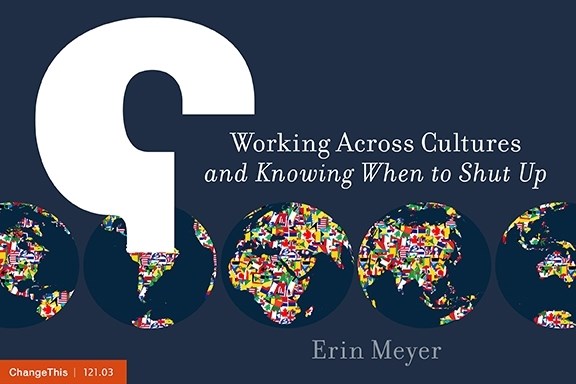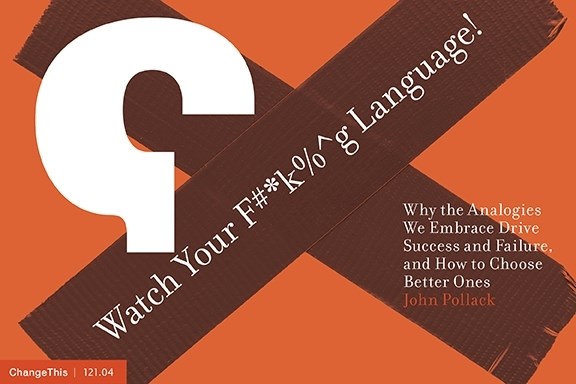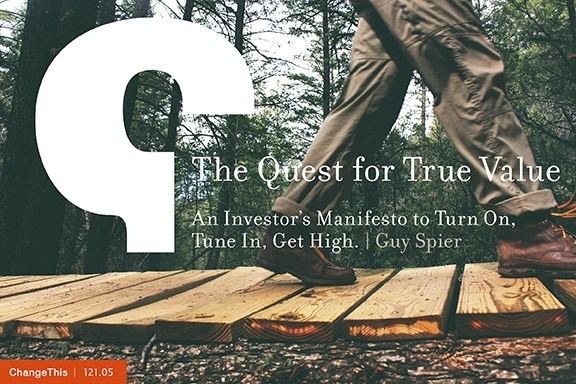ChangeThis RSS
This isn't a manifesto about following your passions or being happy, it's a call to action to change and evolve our organizations to reflect the world that they operate in.
Continue reading
"As someone who has studied leaders and the topic of leadership for more than three decades, I have long since believed that humility is the most under-rated of all leadership qualities.
As a member of the publishing community for the same length of time, I have been baffled that no (commercial) publisher has ever published a book that instructs managers, leaders, and aspiring leaders how to become more humble. However, this should not come as a big surprise. That's because there has not been an inspiring, humble figure that could be used as a shining example of this key leadership quality.
Until now. Since Jorge Mario Bergoglio became Pope Francis in March of 2012, he has shown the world a new way to lead. Not with bluster or bravado, but with humility and humanity. He has, without a doubt, emerged as the most humble leader on the world stage. There isn't even a close second."
Continue reading
"Today, whether we work with colleagues in Dusseldorf or Dubai, Braslia or Beijing, New York or New Delhi, we are all part of a global network (real or virtual, physical or electronic) where success requires navigating through wildly different cultural realities. Unless we know how to decode other cultures and avoid easy-to-fall-into cultural traps, we are easy prey to misunderstanding, needless conflict, and deals that fall apart.
Yet most managers have little understanding of how local culture impacts global interaction. Even those who are culturally informed, travel extensively, and have lived abroad often have few strategies for dealing with the cross-cultural complexity that affects their team's day-to-day effectiveness. Often the cross-cultural challenges that arise could be avoided by learning a few basic principles. For example, the answer to the simple question, 'When should I speak and when should I be quiet?' varies dramatically from one culture to another."
Continue reading
"The analogical instinct is the human urge to compare what we encounter to what we know and, based on that comparison, jump to conclusions. This rush to judgment is a good thing, most of the time. It's an evolutionary advantage that helped our ancestors perceive the difference between a floating log and a floating crocodile; those who failed to see the similarity tended to get eaten at higher rates, and reproduce less. ...
Eons later, analogies still drive our decision-making as individuals, as organizations, as companies and even as nations. ... In fact, a survey of history's greatest innovators, from Copernicus to Gutenberg to Darwin to the Wright Brothers, all achieved their greatest breakthroughs in large part through the effective use of analogy. Leaders as diverse as Winston Churchill, Steve Jobs and Martin Luther King also used analogy to great effect, persuading millions that they could change the world, no matter what challenges might lie ahead."
Continue reading
"When I discovered Warren Buffett, a light went on in my head. It did not take me long to realize that I wanted a life that was more like his than mine.
Determined to transform my life, I began a long journey of discovery. It lead to my having a charity lunch with Warren Buffett at Smith & Wollensky's in 2008, but it also came with many costly mistakes and hard earned, but valuable lessons. [...]
Today, I might not quite tap dance to work as well as Warren Buffett does, but I've gotten a lot better.
My suggestion to you: lighten up. Stop working so hard and focusing on the money and your next promotion all the time. Start having fun while you work instead. That joy will show in your eyes, and the promotion and that raise will take care of themselves, along with career and life success."
Continue reading











